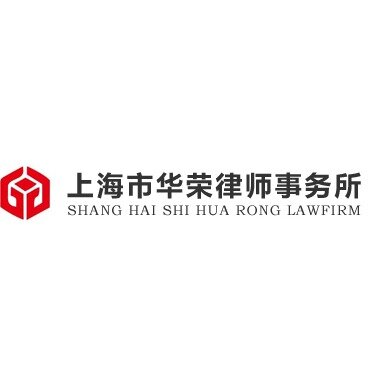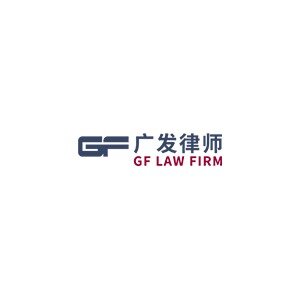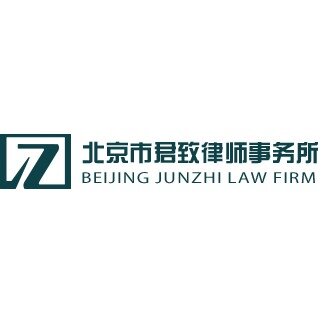Best Mining Law Lawyers in China
Share your needs with us, get contacted by law firms.
Free. Takes 2 min.
Or refine your search by selecting a city:
List of the best lawyers in China
About Mining Law in China
Mining Law in China is a specialized area of law that governs the exploration, extraction, and management of mineral resources within the country. Driven by China’s significant demand for raw materials, mining activities are subject to strict government regulation to ensure orderly development, economic benefit, and environmental protection. The cornerstone of this framework is the Mineral Resources Law, supported by a variety of subordinate laws, regulations, and administrative guidelines. These legal instruments set the rules for licensing, operations, resource ownership, safety, and environmental responsibilities for entities engaged in mining.
Why You May Need a Lawyer
Mining Law in China is both complex and subject to frequent regulatory updates. Hiring a skilled lawyer can be critical in various situations, including:
- Securing exploration or mining licenses
- Navigating the environmental assessment and compliance requirements
- Negotiating joint ventures or investments with state-owned or private partners
- Transferring, acquiring, or disposing of mining rights
- Resolving disputes related to land use, compensation, or liability
- Ensuring compliance with labor, safety, and environmental laws
- Handling allegations of illegal mining or non-compliance with operational standards
- Managing tax, royalty, and revenue sharing matters
Working with a legal expert can help avoid costly mistakes, ensure compliance, and protect your interests throughout the mining process.
Local Laws Overview
In China, the main law governing mining activities is the Mineral Resources Law, which stipulates that all mineral resources are owned by the state. Here are some key facets of the local legal framework:
- Licensing: Exploration and extraction require separate government-issued licenses. The processes involve strict qualification requirements and detailed applications, including technical, environmental, and financial criteria.
- Ownership: While minerals are state-owned, mining rights can be leased to individuals or entities for a fixed period, subject to renewal or transfer under certain conditions.
- Environmental Protection: Operators must submit environmental impact assessments, implement protection measures, and comply with restoration obligations post-mining.
- Safety: Stringent safety laws aim to prevent workplace accidents and protect workers. Regular inspections and compliance with technical standards are mandated.
- Local Government Roles: Provincial and local governments often play a significant role in managing mining activities and issuing licenses, coordinating closely with central authorities.
- Foreign Investment: Mining involving foreign investors is subject to additional approvals, restrictions, and security reviews, particularly for rare earth and critical minerals.
- Dispute Resolution: Legal disputes may be resolved through administrative reviews, litigation in Chinese courts, or, in some cases, arbitration if agreed upon by parties.
Frequently Asked Questions
What types of minerals can be legally mined in China?
Most minerals can be mined as long as the relevant licenses are obtained. However, certain minerals like rare earths and radioactive minerals are subject to special regulatory controls.
Who owns the mineral resources in China?
All mineral resources are owned by the state, regardless of land ownership. Mining rights are granted by the government to qualified entities or individuals for a specific period.
How are mining rights granted?
Mining rights are typically granted through administrative procedures, often involving auctions or tenders. Applicants must satisfy stringent qualifications, including technical expertise and financial capacity.
Can foreign investors participate in mining activities?
Yes, but foreign participation may require additional approvals and be limited in some sectors, such as strategic minerals. Reviews for national security and technology transfer concerns may also apply.
What are the main environmental obligations for mining operations?
Operators must conduct environmental impact assessments, submit restoration plans, implement pollution controls, and comply with all laws regarding land rehabilitation after mining ends.
How long do mining licenses last?
License durations vary by mineral type and project scale but generally range from three to ten years for exploration and up to thirty years for mining, subject to renewal.
Are there taxes or royalties on mining?
Yes, operators must pay resource taxes, royalties, and potentially other fees based on output and value. The rates differ by mineral and region.
How are disputes related to mining typically resolved?
Disputes can be handled through negotiations, administrative appeals, litigation, or arbitration. The specific process may depend on terms in contracts and the nature of the dispute.
What penalties exist for illegal mining?
Penalties include fines, license revocation, confiscation of illicit gains, and, in severe cases, criminal liability. Illegal mining is strictly prosecuted in China.
Can mining rights be transferred or sold?
Mining rights can be transferred or sold, but only under government approval and upon meeting regulatory requirements. Transfers often involve public notice and may be subject to bidding.
Additional Resources
If you need more information or support, the following resources and organizations can assist:
- Ministry of Natural Resources of the People’s Republic of China - Responsible for issuing mining licenses and overseeing the mining sector
- Local Bureaus of Natural Resources - Handle provincial and municipal mining management and regulatory oversight
- China Mining Association - Industry organization that provides policy updates, legal consultations, and industry networking
- Delegations of the Chinese People's Political Consultative Conference (CPPCC) - Play an advisory role in resource management at local levels
- Qualified environmental and legal consulting firms specializing in mining law compliance and risk management
Next Steps
If you need legal assistance with Mining Law in China, consider these steps:
- Identify your specific needs, whether licensing, compliance, dispute resolution, or investment due diligence.
- Gather all relevant documents, including titles, licenses, previous correspondence, and contracts.
- Contact a qualified Chinese lawyer or law firm specializing in mining and natural resources law.
- Consult with your chosen expert to understand your rights, obligations, and possible strategies.
- Stay updated on changes in regulations, as mining law in China evolves rapidly, especially concerning environmental and foreign investment issues.
Taking these steps early can help you avoid legal pitfalls and ensure a smoother mining operation or investment experience in China.
Lawzana helps you find the best lawyers and law firms in China through a curated and pre-screened list of qualified legal professionals. Our platform offers rankings and detailed profiles of attorneys and law firms, allowing you to compare based on practice areas, including Mining Law, experience, and client feedback.
Each profile includes a description of the firm's areas of practice, client reviews, team members and partners, year of establishment, spoken languages, office locations, contact information, social media presence, and any published articles or resources. Most firms on our platform speak English and are experienced in both local and international legal matters.
Get a quote from top-rated law firms in China — quickly, securely, and without unnecessary hassle.
Disclaimer:
The information provided on this page is for general informational purposes only and does not constitute legal advice. While we strive to ensure the accuracy and relevance of the content, legal information may change over time, and interpretations of the law can vary. You should always consult with a qualified legal professional for advice specific to your situation.
We disclaim all liability for actions taken or not taken based on the content of this page. If you believe any information is incorrect or outdated, please contact us, and we will review and update it where appropriate.
Browse mining law law firms by city in China
Refine your search by selecting a city.

















